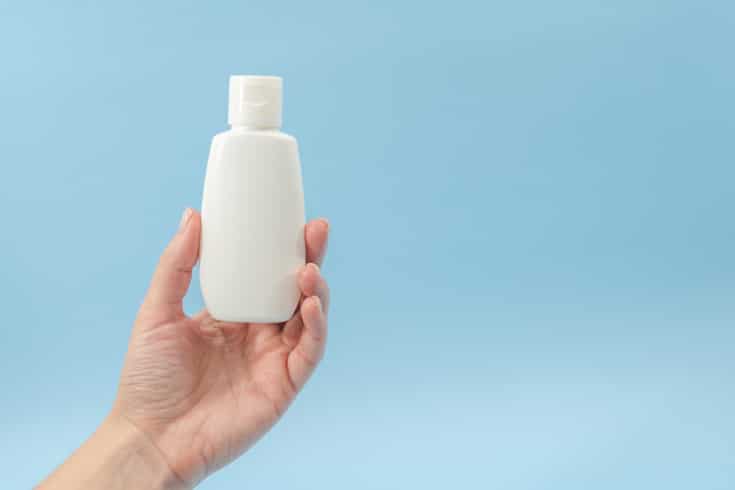Is Stealth Marketing Unfair Labeling? Explaining the Movement Towards Stricter Regulations and the Japanese 'Premium Labeling Law

Stealth marketing, or “stema” in Japanese, where businesses advertise their products or services under the guise of natural posts on social media platforms like SNS and YouTube, is becoming increasingly prevalent. There are concerns that this form of marketing could disrupt fair market practices, prompting the government to consider strengthening regulations to address this issue. Going forward, it will be necessary to pay attention to these regulations when planning advertisements.
In this article, we will discuss the issues with stealth marketing and unfair representations under the Japanese Act against Unfair Premiums and Misleading Representations, based on a report issued by the Consumer Affairs Agency on December 27, 2022.
What are the Issues with Stealth Marketing?

Stealth Marketing, or “Stema” in Japanese, refers to the practice of advertisers promoting their products or services in a way that consumers do not realize they are being advertised to.
With the widespread use of smartphones, anyone can disseminate information. Many people check photos and videos updated by influencers on social media platforms like SNS and YouTube daily. Among these posts, some are disguised as natural personal posts, subtly advertising products or services. This so-called “Stema” has become a problem. According to a survey by the Consumer Affairs Agency in Japan, about 40% of influencers have been asked to do “Stema advertising” by companies.
Stealth marketing, which appears to be a neutral third party but is actually an “advertisement” for which the business operator provides monetary or other consideration, has been viewed as a problem as it disrupts fair market order.
Two Types of Stealth Marketing
Generally, Stealth Marketing is divided into two types: “Impersonation Type” and “Benefit Provision Concealment Type”.
“Impersonation Type” Stealth Marketing refers to the practice where a business operator or someone who receives economic compensation from the business operator posts reviews on review sites, etc., misleading consumers into believing that the reviews are posted by a genuine third party.
“Benefit Provision Concealment Type” Stealth Marketing refers to the practice where a business operator provides economic benefits to a third party to advertise or promote products or apps, etc., without disclosing this fact.
Both types of Stealth Marketing can be said to potentially hinder consumers’ autonomous and rational choices.
Related article: Deleting Other Companies’ Stealth Marketing (Stema) Articles[ja]
Is Stealth Marketing a Violation of the Premiums and Representations Act?
The Premiums and Representations Act is a law that aims to “protect the interests of general consumers by regulating and prohibiting acts that may hinder the autonomous and rational choice of general consumers due to unfair premiums and representations related to the trading of goods and services” (Article 1 of the Premiums and Representations Act).
In the relationship between this law and Stealth Marketing, Article 5 becomes an issue. For more detailed explanations about Stealth Marketing and the Premiums and Representations Act, please refer to the following article.
Related article: Is it a Violation of the Premiums and Representations Act for YouTubers to do Stealth Marketing? What’s the Difference with Corporate Projects?[ja]
Prohibition of Unfair Representation under the Japanese Premiums and Representations Act

The Japanese Premiums and Representations Act prohibits businesses from making the following representations about their products or services, which are considered unfair (Article 5 of the Japanese Premiums and Representations Act).
- Superiority Misrepresentation: Unfair representation regarding the quality, standards, or other aspects of products or services (Article 5, Paragraph 1).
- Advantage Misrepresentation: Unfair representation regarding the price or other transaction conditions of products or services (Article 5, Paragraph 2).
- Designated Notice: Unfair representation designated by the Prime Minister when it is recognized that there is a risk of general consumers being misled about matters related to the transaction of products or services (Article 5, Paragraph 3).
Misrepresentation of Superior Quality
Regarding the misrepresentation of superior quality, Article 5, Paragraph 1 of the Japanese Act against Unjustifiable Premiums and Misleading Representations (景品表示法) stipulates, “A representation that indicates to the general consumer that the quality, standards, or other content of goods or services are significantly superior to the actual ones, or that they are significantly superior to those of other businesses supplying the same or similar goods or services, contrary to the facts.”
In other words, the act of falsely advertising that the quality of a product or service is superior to its actual quality, or falsely advertising as if it is significantly superior to the products or services sold by competitors, even though it is not particularly superior, falls under the misrepresentation of superior quality.
For example, a case where a supplement is touted as having a dieting effect, such as “lose weight while eating,” even though it actually has no effect, would fall under this category.
Misleading Representation of Advantage
Regarding misleading representation of advantage, Article 5, Paragraph 2 of the Japanese Act against Unjustifiable Premiums and Misleading Representations stipulates that “any representation that would lead the general consumer to believe that the price or other transaction conditions of goods or services are significantly more advantageous than the actual ones or those of other businesses supplying the same or similar goods or services.”
In other words, acts that falsely advertise the transaction conditions of goods or services as being more advantageous than they actually are, or falsely advertise as if they are significantly cheaper than the goods or services sold by competitors, even though they are not particularly cheap, fall under the category of misleading representation of advantage. For example, a case where a representation is made such as “Normally 1,000 yen, but only 500 yen for today only,” even though there is no actual practice of selling at 1,000 yen, would be applicable.
Designated Unfair Representations
In addition to these, under Article 5, Paragraph 3 of the Japanese Act against Unjustifiable Premiums and Misleading Representations, the Prime Minister can designate “representations that may mislead the general consumer about matters related to the transaction of goods or services” as unfair. To date, the following six cases have been designated under this provision.
1. “Representation of Non-Juice Refreshing Beverages” (Fair Trade Commission Notification No. 4 of 1973 (Showa 48))
Representations of non-juice refreshing beverages using the names of fruits, etc., where it is not clearly stated that they contain no juice
2. “Unfair Representation of the Country of Origin of Goods” (Fair Trade Commission Notification No. 34 of 1973 (Showa 48))
Representations that make it difficult to determine the country of origin
3. “Unfair Representation of Consumer Credit Financing Costs” (Fair Trade Commission Notification No. 13 of 1980 (Showa 55))
Representations where the annual percentage rate is not clearly stated
4. “Representation of Real Estate Bait Advertising” (Fair Trade Commission Notification No. 14 of 1980 (Showa 55))
Representations of real estate that cannot actually be transacted or cannot be the subject of a transaction
5. “Representation of Bait Advertising” (Fair Trade Commission Notification No. 17 of 1993 (Heisei 5))
Representations of goods or services that cannot actually be transacted, or in cases where preparations for transactions have not been made
6. “Unfair Representation of Paid Elderly Homes” (Fair Trade Commission Notification No. 3 of 2004 (Heisei 16))
Representations where the contents of the facilities and services of paid elderly homes, which are the subject of the transaction, are not clearly stated
For example, in the case of 6, representations such as “conditions for changing rooms after moving into a paid elderly home are not clearly stated” and “the number of minimum care staff or nurses at night, etc., is not clearly stated” are prohibited as “Unfair Representation of Paid Elderly Homes”.
Limitations of the Japanese Premiums and Representations Act
Under the Japanese Premiums and Representations Act (Article 7, Paragraph 1), measures can be ordered against businesses that have made unfair representations. These measures include the cessation of such actions and the implementation of steps to eliminate any misconceptions caused to general consumers.
Furthermore, in cases of superior misrepresentation or advantageous misrepresentation that meet certain criteria, an order can be issued to pay a surcharge to the national treasury. This surcharge is calculated by applying a certain rate to the sales amount of the product or service in question (Japanese Premiums and Representations Act, Article 8, Paragraph 1).
Thus, if there is superior misrepresentation or advantageous misrepresentation, measures can be taken against stealth marketing under the current Japanese Premiums and Representations Act. However, if the representation does not fall under unfair representation, in other words, if it does not fall under superior misrepresentation, advantageous misrepresentation, or unfair representation specified in the designated notice, it is not possible to regulate stealth marketing under the Japanese Premiums and Representations Act.
For example, in 2019 (Heisei 31), there was a case where Walt Disney Japan had asked several manga artists to post their impressions of the movie “Frozen 2” on social media for promotional purposes, but did not explicitly state that it was an advertisement. There was also controversy over a case where the city of Kyoto had paid one million yen to a popular comedy duo to promote the city’s initiatives on Twitter through a contract with Yoshimoto Kogyo, without specifying that it was an “advertisement”. However, these cases did not fall under the unfair representations prohibited by the Japanese Premiums and Representations Act, and therefore were not subject to its regulations.
On the other hand, looking at stealth marketing regulations in foreign countries, Section 5 of the U.S. Federal Trade Commission Act (FTC Act) generally prohibits unfair competition and deceptive practices. It includes “making endorsement statements while receiving money, pretending to be an independent opinion of a fair consumer or expert”. In addition, the guidelines impose an obligation to disclose the existence of significant relationships and monetary transactions between the endorser of a product or service and the marketer or advertiser.
The EU’s Unfair Commercial Practices Directive also generally prohibits “unfair commercial practices” and prohibits “businesses from paying for articles to be written and then using those articles for promotional activities without disclosing that fact”.
Contents of the Report on Stealth Marketing
In the current situation, a report by the Expert Review Meeting of the Consumer Affairs Agency[ja] has been compiled, which reports that regulations under the Japanese Act against Unjustifiable Premiums and Misleading Representations (Act on Specified Commercial Transactions) are necessary for stealth marketing.
Relationship with the Purpose of the Act against Unjustifiable Premiums and Misleading Representations
The Act against Unjustifiable Premiums and Misleading Representations aims to regulate “acts that may hinder voluntary and rational choices by general consumers” (Article 1 of the Act). If there is a discrepancy between the impression and understanding that general consumers get from the overall display and the actual thing, even if it is not “significant”, it will cause misunderstanding among general consumers. For general consumers to make voluntary and rational choices, it is a prerequisite that the display is correct and does not mislead consumers, in other words, there is no discrepancy between the display and the actual thing.
Despite being an advertisement, the act of hiding that it is an advertisement could be considered to cause a misunderstanding that it is a consumer’s voluntary information transmission, despite being a business advertisement. This misunderstanding can be said to hinder the voluntary and rational choice of general consumers in product selection.
Therefore, the report proposes that the act of hiding that it is an advertisement, despite being an advertisement, can be said to be an “act that may hinder voluntary and rational choices by general consumers”, and it can be said to be contrary to the purpose of the Act against Unjustifiable Premiums and Misleading Representations, and there is a need to regulate it under the Act.
About the Law Regulating Stealth Marketing
In the report, after concluding that there is a “need for regulation” for stealth marketing, it is necessary to regulate it urgently, and it is appropriate to newly add “something that is difficult for consumers to distinguish as a display by a business operator = advertiser” to the unfair display targets of Article 5, Paragraph 3 of the Act against Unjustifiable Premiums and Misleading Representations, and to newly designate it as a prohibited act.
Advertisements conducted by businesses, not only on SNS but also on the Internet, TV, newspapers, and other media, need to be clearly marked as “advertisement”, “promotion”, “PR” so that consumers can understand that they are advertisements, and if they are unclear, such as smaller notation than surrounding text, they are considered to be prohibited acts. It is also proposed to add this to the unfair display in the Act against Unjustifiable Premiums and Misleading Representations, and if violated, the advertiser will be subject to administrative sanctions.
In addition, the report also touches on issues that should be considered in the future. Stealth marketing may be conducted mainly by “intermediary businesses” that solicit malicious fraudulent reviews, and since only business operators = advertisers are targeted under the Act against Unjustifiable Premiums and Misleading Representations, it is pointed out that “it may not be possible to eliminate unfair displays by regulating only advertisers”. It is also proposed that further regulations are necessary, including a review of the current Act against Unjustifiable Premiums and Misleading Representations, such as considering expanding the scope of regulation not only to advertisers but also to intermediary businesses and influencers.
(Addendum) In response to this report, regulations on stealth marketing have been strengthened from October of Reiwa 5 (2023). For details, please refer to the following article.
Related article: Mandatory ‘advertisement’ disclosure from October of Reiwa 5 (2023). Explanation of the operational standards of stealth marketing regulations[ja]
Conclusion: Stealth Marketing Requires Expert Judgment, Consult a Lawyer
In this article, we have discussed the issues of stealth marketing, its relationship with the Japanese Act against Unjustifiable Premiums and Misleading Representations, and other related topics, based on the report from the Consumer Affairs Agency’s “Study Group on Stealth Marketing”.
As of the time of writing (April 2023), in response to this report, on March 28, 2023, the Designation of ‘Displays that are difficult for general consumers to identify as a business operator’s display’ and ‘Operational standards for displays that are difficult for general consumers to identify as a business operator’s display'[ja] was announced. This designation will be enforced from October 1, 2023.
Whether a display violates the Japanese Act against Unjustifiable Premiums and Misleading Representations requires expert judgment. It is advisable to have your advertisements legally checked by a lawyer for peace of mind.
Guidance on Measures by Our Firm
Monolith Law Office is a legal office with extensive experience in both IT, particularly the internet, and law. The recent strengthening of regulations on stealth marketing has been attracting significant attention in the business field. Please feel free to consult our firm for any issues related to advertising and the like. Details are provided in the article below.
Areas of practice at Monolith Law Office: Article and LP checks for Japanese Pharmaceutical and Medical Device Act, etc.[ja]
Category: General Corporate





















